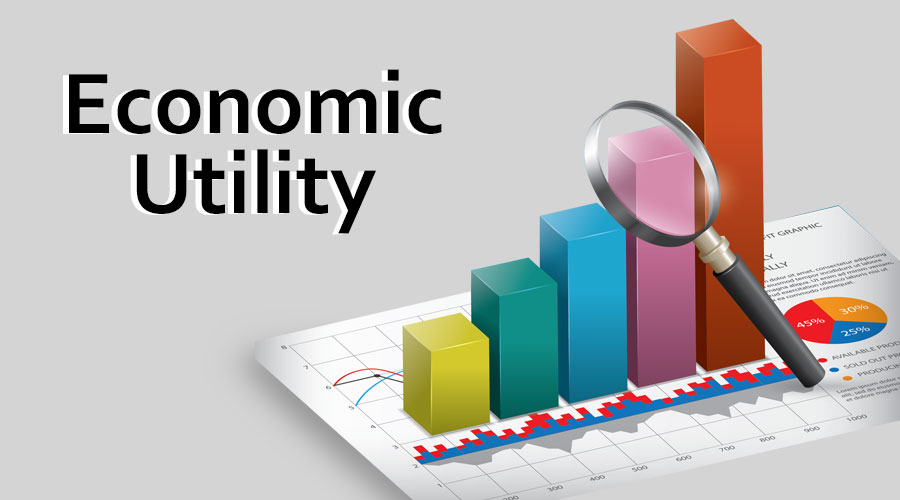Economic Utility


What is Economic Utility?
Economic utility is a notion designed to comprehend how much a specific commodity or service can meet a consumer’s wants.
Understanding Economic Utility
Since classical economics asserted that consumers made rational purchase decisions based on maximizing utility, the concept has grown in importance. According to this hypothesis, all economic transactions are carried out after calculating the degree of value acquired from each choice and then choosing the one with the maximum utility. This may sound compelling in theory, but in practice, there are many different sorts of value, which means that individuals may not be rational in their decisions, but they may still make decisions based on the highest utility obtained.
There are four types of economic utility.
Utility is classified into four types: form, time, place, and possession.
Form – Form relates to the specific function of the object being purchased; for example, one shop may offer blank writing pages, but another may sell notebooks. As a result, the format in which the pages are displayed either boosts or diminishes utility.
Time – The second factor is the availability of the commodity being purchased.
Place – Place, on the other hand, is a sort of utility that is defined by the placement of the goods or services, and utility improves as the items are more conveniently accessible for the user.
Possession – Finally, possession quantifies the value gained by the consumer by owning the thing.
« Back to Glossary IndexDisclaimer
In line with the Trust Project guidelines, please note that the information provided on this page is not intended to be and should not be interpreted as legal, tax, investment, financial, or any other form of advice. It is important to only invest what you can afford to lose and to seek independent financial advice if you have any doubts. For further information, we suggest referring to the terms and conditions as well as the help and support pages provided by the issuer or advertiser. MetaversePost is committed to accurate, unbiased reporting, but market conditions are subject to change without notice.
About The Author
Damir is the team leader, product manager, and editor at Metaverse Post, covering topics such as AI/ML, AGI, LLMs, Metaverse, and Web3-related fields. His articles attract a massive audience of over a million users every month. He appears to be an expert with 10 years of experience in SEO and digital marketing. Damir has been mentioned in Mashable, Wired, Cointelegraph, The New Yorker, Inside.com, Entrepreneur, BeInCrypto, and other publications. He travels between the UAE, Turkey, Russia, and the CIS as a digital nomad. Damir earned a bachelor's degree in physics, which he believes has given him the critical thinking skills needed to be successful in the ever-changing landscape of the internet.
More articles

Damir is the team leader, product manager, and editor at Metaverse Post, covering topics such as AI/ML, AGI, LLMs, Metaverse, and Web3-related fields. His articles attract a massive audience of over a million users every month. He appears to be an expert with 10 years of experience in SEO and digital marketing. Damir has been mentioned in Mashable, Wired, Cointelegraph, The New Yorker, Inside.com, Entrepreneur, BeInCrypto, and other publications. He travels between the UAE, Turkey, Russia, and the CIS as a digital nomad. Damir earned a bachelor's degree in physics, which he believes has given him the critical thinking skills needed to be successful in the ever-changing landscape of the internet.






















































